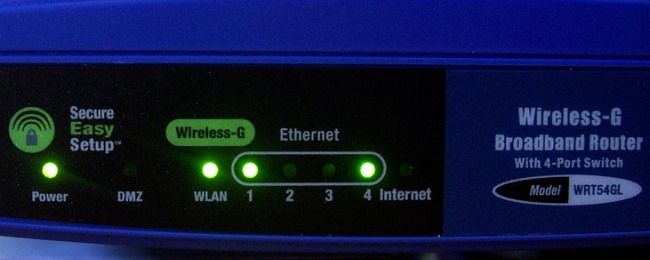If you are purchasing a new router for a household with a high number of devices, you might wonder if it can handle all those devices concurrently without a problem. Today's SuperUser Q&A post looks at the debate a reader is facing as he gets ready to purchase a new router for a heavy-usage household.
Today’s Question & Answer session comes to us courtesy of SuperUser—a subdivision of Stack Exchange, a community-driven grouping of Q&A web sites.
Photo courtesy of Antonio Nicolas Pina (Flickr).
The Question
SuperUser reader MyDaftQuestions wants to know if routers have a limit on the number of devices that can be connected concurrently:
I am going to buy a new router, but I have just realized that for nearly all the routers I have looked at (Belkin, Netgear, D-Link), they do not state the maximum number of devices that can connect concurrently.
I have a D600 and have looked on their website, through the manual, and also found no mention of the limit (which I really need to know if there is one due to debugging another issue).
The new router will be a gift for a friend. The issue is, they have 12 devices in their house, all of which require Wi-Fi, and another 3 devices which will be hard wired.
Since the router websites do not mention any limitations, can I assume there is a general limit on what the number of concurrently connected devices can do? Or is the issue more about understanding that, the more devices that are connected, the worse the performance will be due to the sharing of the resource?
My question is, without physically trying it, is there any way to know that a certain device will work with a given number of concurrently connected devices?
Is there a limit on the number of devices that can be connected concurrently to a router?
The Answer
SuperUser contributors D. Kasipovic and Daniel B have the answer for us. First up, D. Kasipovic:
I do not think there is a limit to the number of devices that can connect. It would make more sense that most routers are limited by their hardware, and will experience performance degradation as the number of devices increases.
This I suppose, largely depends on the speed of the router's CPU and available RAM, but it would also largely depend on the services running on the router, i.e. is NAT enabled, QoS, VPN, access control, is wireless open or password protected, etc. I think the amount of traffic that devices create is also an important factor to the limit.
I think this might also be the reason why manufacturers do not specify the number of devices that can connect, because it depends on many factors.
Followed by the answer from Daniel B:
There is a (theoretical) absolute limit of 65,535 concurrent connections. When using SNAT or MASQUERADE, that is. As such, the maximum feasible number of devices would be somewhere near 800, to account for closing and opening connections.
Naturally, this would require a network larger than /24, which poses no problem with OpenWrt and the like. Still, the connection tracking load would be quite high.
Have something to add to the explanation? Sound off in the comments. Want to read more answers from other tech-savvy Stack Exchange users? Check out the full discussion thread here.

